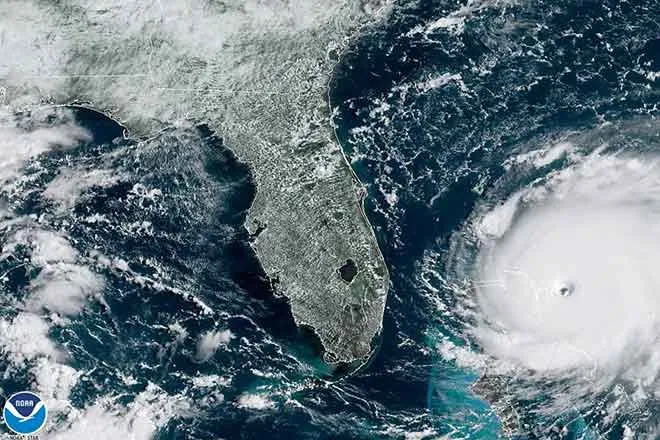
Opinion: Time to repeal Colorado’s sanctuary laws
In the face of escalating crime rates fueled by a surge of migrants into Colorado, a crucial bill aimed at enhancing public safety is set for a pivotal public hearing on Thursday before the House's State, Civic, Military and Veterans Affairs Committee. Sponsored by me, the bill, HB24-1128 Enforcement of Federal Immigration Law, takes a bold stance by seeking to repeal four of the state's "sanctuary" laws enacted by Democrats in recent years.
Though the bill may not directly address the national crisis resulting from the Biden Administration's Open Borders policy, its potential enactment into law carries significant implications for safeguarding Coloradans from criminal migrants preying on our citizens.
Realistically, I harbor no illusions about the bill's fate, given the Democrats' overwhelming 8-to-3 majority on the committee. Nevertheless, I am hopeful the ensuing debate will catalyze a broader public discourse, shedding light on the exorbitant toll our state pays due to the progressives' refusal to acknowledge the deadly consequences of the Biden administration's "Open Borders" policies.
My bill takes aim at repealing four recently enacted "sanctuary" laws, which severely curtail Colorado's state and local law enforcement agencies' ability to collaborate with Immigration and Customs Enforcement (ICE). These laws hinder communication and coordination between county jail officials and ICE agents, preventing the identification and detainment of known criminal migrants upon their release. Similar restrictions apply to the state Department of Corrections regarding the release of criminal aliens who have completed their sentences in state prisons, resulting in more than 1,000 criminal aliens being released into Colorado communities annually without undergoing scrutiny for deportation eligibility under federal law.
It is imperative to recognize that, unbeknownst to many Coloradans, the entire state has become a sanctuary state. Historically, our state capital, Denver, was renowned as a sanctuary city, consistently flouting federal immigration law enforcement by refusing to cooperate in sharing vital information on inmates' release dates. Presently, Colorado is subject to "Denver values," prioritizing the release of thousands of convicted criminal aliens over cooperation with federal immigration authorities in identifying those eligible for deportation.
The bill specifically targets four statutes for repeal, meticulously outlined within the legislation, leaving other "sanctuary" laws, including those governing social benefits like driver's licenses and occupational licenses, unaffected.
The escalating number of criminal aliens incarcerated in Colorado county jails and state facilities after conviction in state courts is exacerbated by President Joe Biden's perilous open borders policies. Recent data from the federal Department of Homeland Security for 2021, 2022, and 2023 highlight more than 1.7 million "gotaways," individuals officially counted and reported but with unknown identities, many of whom are criminals and drug smugglers.
Colorado lawmakers find themselves standing at a pivotal crossroads, confronted with the compelling imperative to take decisive action aimed at eradicating the impediments that currently hinder the federal government's deportation of criminal aliens released from our state and county correctional facilities. This urgent call to action stems from a recognition that allowing the recycling of these individuals back into our communities poses not only an unwarranted risk but also threatens the fundamental fabric of public safety. It is crucial to elucidate that, when we use the term "criminal alien" in this context, we specifically refer to individuals who have been duly convicted under Colorado state law and subsequently sentenced to incarceration in either a state or county jail.
The gravity of this matter cannot be overstated, as it directly impacts the well-being and security of the citizens residing within the state's borders. The existing hindrances to the deportation process not only compromise public safety but also perpetuate a cycle of criminal activities within our communities. By neglecting to address these obstacles, the state inadvertently transforms into a sanctuary for individuals who have previously demonstrated a blatant disregard for the law, thereby allowing them the potential to commit further offenses upon release.
For more than 25 years, the federal State Criminal Alien Assistance Program (SCAAP) has reimbursed county jails and the state Department of Corrections for a substantial portion of the cost of incarcerating criminal aliens. The annual number of criminal alien inmates seeking federal reimbursement often surpasses 500, indicating a significant financial burden. Over the past decade, it is probable at least 10,000 criminal aliens have been released from Colorado jails without undergoing scrutiny for potential deportation.
It is time for Colorado to cease providing "sanctuary" to criminals and terrorists. The repeal of Colorado's advertised welcome mat is a crucial and decisive step in the right direction.
Richard Holtorf is a third-generation cattle rancher and represents the residents of the seven Colorado counties of District 63 in the Colorado General Assembly’s House of Representatives.














